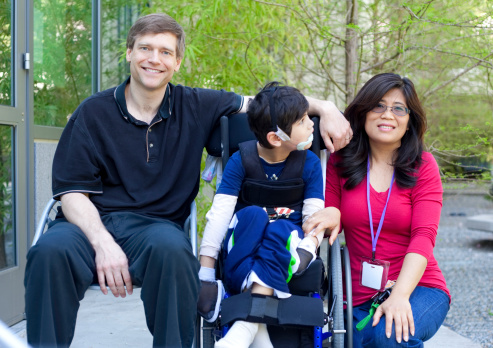Parents With Disabilities Deemed Unfit To Care For Children

Living with a disability can be quite difficult. This is especially true in cases where a fit adult parent must learn to provide care for their disabled minor child. While there are a number of conditions that require constant care and supervision, cerebral palsy is one of the most common. Unfortunately, despite the outstanding care that many parents provide to their disabled children, the risk of removal by the state continues to be a serious threat for many families.

There is no question that parents of children with disabilities face a number of serious obstacles when it comes to daily care. Bathing, feedings, and even bedtime can prove to be quite challenging. Experts agree, however, that mothers and fathers—who more often than not are aware of tricks and tips to speed these daily processes—can be crucial to maintaining not only health, but also quality of life. Children with disabilities who live at home with their parents may be calmer, more cooperative, exhibit lower rates of depression, and have a longer life expectancy than those who are institutionalized.
Obviously, there are a number of benefits associated with the home care of children who have been diagnosed with a moderate to severe disability. However, it is important to remember that there can also be risks and consequences associated with this type of care. Some experts believe that parents of disabled children may not be aware of the intricacies associated with medication administration, resulting in potentially deadly interactions or over dosages. In addition, failing to recognize the symptoms of a pending seizure, respiratory distress, or heart arrhythmia can also be potentially disastrous for children living with a disability at home.
Determining the best locale for a child with a disability continues to be a struggle for both the medical and legal worlds. Despite the best intentions of most professionals, sometimes the wrong decision is made—as in the case of Marie Freyre. Diagnosed with cerebral palsy, Marie was a 14-year old girl who went into cardiac arrest hours after being removed from her Florida home and transported to a local nursing home facility. Reportedly, Freyre did not receive food, water, and the medications that were essential for preventing serious seizures. Freyre was transported to the nursing home in a position believed to cause excruciating pain to her hips and lower extremities.
Parents of children with disabilities often fare best when working with professional groups and organizations. The National Dissemination Center for Children with Disabilities is a group organization that focuses not only on those living with cerebral palsy, but a host of other serious, chronic disabilities. Parents of those with disabilities may also want to talk with healthcare providers, and learn what benefits and options are available to them within their own community. While raising a child with a disability can be a struggle, there are a number of caring professionals devoted to providing the best care and support possible.
Robert Gordon, the editor of medical-directions.com and a health fanatic inspired and helped me with this article.
